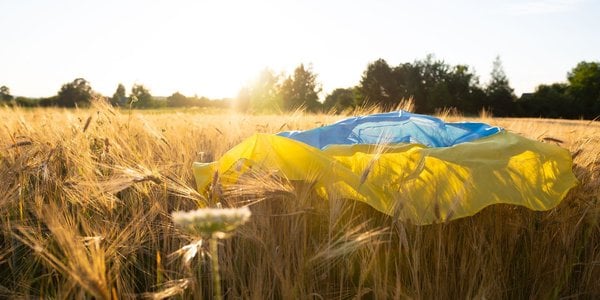
Ukraine will file a lawsuit with the World Trade Organization (WTO) against Poland, Hungary and Slovakia over their refusal to lift the ban on Ukrainian agricultural products, Taras Kachka, Deputy Minister of Economy and Trade and Ukraine’s trade representative, told Politico.
“It is important to prove that these actions are legally unlawful. That’s why tomorrow we will start the court proceedings,” Kachka said last Sunday, adding that Kyiv is preparing to take retaliatory measures against Polish fruit and vegetable exports.
Commenting on the introduction of unilateral bans by Poland, Hungary and Slovakia on Ukrainian grain after the European Commission’s decision to lift the restrictions, Kachka said that “in our opinion, these measures by Hungary and Poland are a statement of total distrust of the European Commission.”
Ukraine’s trade representative believes that the open defiance of Brussels by Poland, Hungary and Slovakia was not just an internal EU matter, but caused what he called “the biggest systemic problem” – whether international trading partners can trust what Brussels says on behalf of the EU.
“For many years, the European Commission has been the mediator in trade negotiations and the trade policy institution for the entire EU. And we are used to working on this basis,” Kachka said, adding that, in his opinion, “the systematic approach of Budapest and Warsaw to ignore the position of the EU institutions in trade policy will be a problem for the EU as a whole, because there is no unity here.”
Kyiv plans to sue the three countries at the World Trade Organization rather than through its own trade agreement with the EU. “I think the whole world needs to see how EU member states behave toward their trading partners and their Union, because it can affect other states,” he emphasized.
While Slovakia simply extended the EU’s previous ban on four types of grain, Poland over the weekend introduced additional bans on Ukrainian flour and feed. Hungary, according to Kaczka, is going even further and banning 25 more products that were not previously discussed, including meat.
“These arbitrary bans are ridiculous. I think that Hungary is making a political statement here that it wants to block trade with Ukraine and completely ignore Brussels. And that’s why I think this is a very bold move against both of us by Budapest,” Kachka emphasized.
While Hungary’s additional bans are mostly symbolic, given that Ukraine does not export much beef and pork to the country, Poland’s measures will affect a significant portion of Ukraine’s exports, Kachka said. If Warsaw does not lift these additional bans, “we will be forced to take measures in response to additional products and ban imports of fruits and vegetables from Poland.”
The governments in Budapest and Warsaw have said they are acting to protect their farmers from a surge of Ukrainian produce that has led to lower prices, but Kaczka denied that reasoning is flawed: “The Polish ban will not help farmers, it will not affect prices because prices are global – what they do is based on public opinion.”
An EU official told the publication that Brussels hopes to solve this problem by forcing Kyiv to impose its own export restrictions in the event of a sudden surge in exports.
When asked about this potential agreement, Kachka said that Kyiv is ready to “take responsibility for ensuring that exports from Ukraine do not cause a tsunami in neighboring countries” and will introduce a system of “real-time” grain export licenses for both countries, which will slow down exports to neighboring countries and allow Ukraine to “react quickly” if a surge is detected.
As reported, the ban on the export of wheat, barley, rapeseed and sunflower seeds from Ukraine to Poland, Hungary, Slovakia, Romania and Bulgaria, introduced on May 2 for the period until June 5, was extended until September 15.
On Friday, September 15, the EU allowed the ban to be lifted after Ukraine promised to take measures to tighten export controls to neighboring countries. On the same day, Poland, Hungary, and Slovakia imposed unilateral bans on imports of Ukrainian agricultural products. In addition to wheat, rapeseed, sunflower, and corn, Poland banned imports of cereals and flour, while Hungary expanded the list to 25 items.